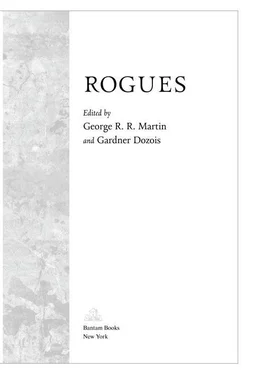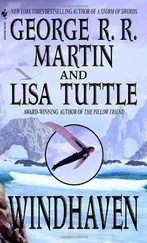“Bread, that is so strange,” she said.
People usually asked what their scent or aura was. It was their first step to committing to the game. Susan shifted uncomfortably. “I don’t mean to be rude,” she said. “But … I think this isn’t for me.”
I waited her out. Empathetic silence is one of the most underused weapons in the world.
“OK,” Susan said. She tucked her hair behind both ears—thick diamond-scattered wedding bands flashing like the Milky Way—and looked ten years younger. I could picture her as a kid, a bookworm maybe, pretty but shy. Demanding parents. Straight As, always. “So what do you read off me?”
“There’s something going on in your house.”
“I already told you that.” I could feel the desperation coming off her: To believe in me.
“No, you told me your life was falling apart. I’m saying it’s something to do with your house. You have a husband, I sense a lot of discord: I see you surrounded by a sick green, like an egg yolk gone bad. Swirls of a healthy vibrant turquoise on the outer edges. That tells me you had something good and it went very bad. Yes?”
Obviously this was an easy guess, but I liked my color arrangement; it felt right.
She glared at me. I was hitting on something close to the bone.
“I feel the same vibrations off you as my mother: those sharp, high piano plinks. You’re desperate, you’re in exquisite pain. You’re not sleeping.”
The mention of insomnia was always risky but usually paid off. People in pain don’t generally sleep well. Insomniacs are exquisitely grateful for people to empathize with their weariness.
“No, no, I sleep eight hours,” Susan said.
“It’s not a genuine sleep. You have unsettling dreams. Maybe not nightmares, maybe you don’t even remember them, but you wake up feeling worn, achy.”
See, you can rescue most bad guesses. This woman was in her forties; people in their forties usually wake up feeling achy. I know that from commercials.
“You store the anxiety in your neck,” I continued. “Also, you smell of peonies. A child. You have a child?”
If she didn’t have a child, then I just say, “But you want one.” And she can deny it— I’ve never, ever even thought about having kids —and I can insist, and pretty soon she leaves thinking it because very few women decide not to procreate without some doubts. It’s an easy thought to seed. Except this one’s smart.
“Yes. Well, two. A son and a stepson.”
Stepson, go with the stepson.
“Something is wrong in your house. Is it your stepson?”
She stood up, fumbled through her well-constructed bag.
“How much do I owe you?”
I got one thing wrong. I thought I’d never see her again. But four days later Susan Burke was back. (“Can things have auras?” she asked. “Like, objects. Or a house?”) And then three days later (“Do you believe in evil spirits? Is there such a thing, do you think?”) and then the next day.
I was right about her, mostly. Overbearing, demanding parents, straight As, Ivy League, a degree that had something to do with business. I asked her the question: What do you do? She explained and explained about downsizing and restructuring and client intersects, and when I frowned, she got impatient and said, “I define and eliminate problems.” Things with her husband were OK except when it came to the stepson. The Burkes had moved into the city the year before, and that’s when the kid went from troubled to troubling.
“Miles was never a sweet boy,” she said. “I’m the only mom he’s known—I’ve been with his dad since he was nine. But he’s always been cold. Introverted. He’s just empty. I hate myself for saying that. I mean, introverted is fine. But in the past year, since the move … he’s changed. Become more aggressive. He’s so angry. So dark. Threatening. He scares me.”
The kid was fifteen, and had just been forcibly relocated from the suburbs into the city where he didn’t know anyone, and he was already an awkward, nerdy kid. Of course he was angry. That would have been helpful, my saying that, but I didn’t. I seized an opportunity.
I’d been trying to move into the domestic aura-cleansing business. Basically when someone moves into a new home, they call you. You wander around the house burning sage and sprinkling salt and murmuring a lot. Fresh start, wipe away any lingering bad energy from previous owners. Now that people were moving back into the heart of the city, into all the old historic houses, it seemed like a boom industry waiting to happen. A hundred-year-old house, that’s a lot of leftover vibes.
“Susan, have you considered that the house is affecting your son’s behavior?”
Susan leaned in, her eyes wide. “Yes! Yes, I do. Is that crazy? That’s why … why I came back. Because … there was blood on my wall.”
“Blood?”
She leaned in and I could smell the mint masking sour breath. “Last week. I didn’t want to say anything … I thought you’d think I was crazy. But it was there. One long trickle from the floor to the ceiling. Am I … am I crazy?”
I met her at the house the next week. Driving up her street in my trusty hatchback, I thought, rust. Not blood. Something from the walls, the roof. Who knew what old houses were built of? Who knew what could leak out after a hundred years? The question was how to play it. I really wasn’t interested in getting into exorcism, demonology church shit. I don’t think that’s what Susan wanted either. But she did invite me to her house, and women like that don’t invite over women like me unless they want something. Comfort. I would breeze over the “blood trickle,” find an explanation for it, and yet still insist the house could use a cleansing.
Repeated cleansings. We had yet to discuss money. Twelve visits for $2,000 seemed like a good price point. Spread them out, one a month, over a year, and give the stepson time to sort himself out, get adjusted to the new school, the new kids. Then he’s cured and I’m the hero, and pretty soon Susan is referring all her rich, nervous friends to me. I could go into business for myself, and when people asked me, “What do you do?” I’d say, I’m an entrepreneur in that haughty way entrepreneurs had. Maybe Susan and I would become friends. Maybe she’d invite me to a book club. I’d sit by a fire and nibble on brie and say, I’m a small business owner, an entrepreneur, if you will. I parked, got out of the car, and took a big breath of optimistic spring air.
But then I spotted Susan’s house. I actually stopped and stared. Then I shivered.
It was different from the rest.
It lurked. It was the only remaining Victorian house in a long row of boxy new construction, and maybe that’s why it seemed alive, calculating. The mansion’s front was all elaborate, carved stonework, dizzying in its detail: flowers and filigrees, dainty rods and swooping ribbons. Two life-sized angels framed the doorway, their arms reaching upward, their faces fascinated by something I couldn’t see.
I watched the house. It watched me back through long, baleful windows so tall a child could stand in the sill. And one was. I could see the length of his thin body: gray trousers, black sweater, a maroon tie perfectly knotted at the neck. A thicket of dark hair covering his eyes. Then, a sudden blur, and he’d hopped down and disappeared behind the heavy brocade drapes.
The steps to mansion were steep and long. My heart was thumping by the time I reached the top, passed the awestruck angels, reached the door, and rang the bell. As I waited I read the inscription carved in the stone near my feet.
carterhook manor
established 1893
Читать дальше












